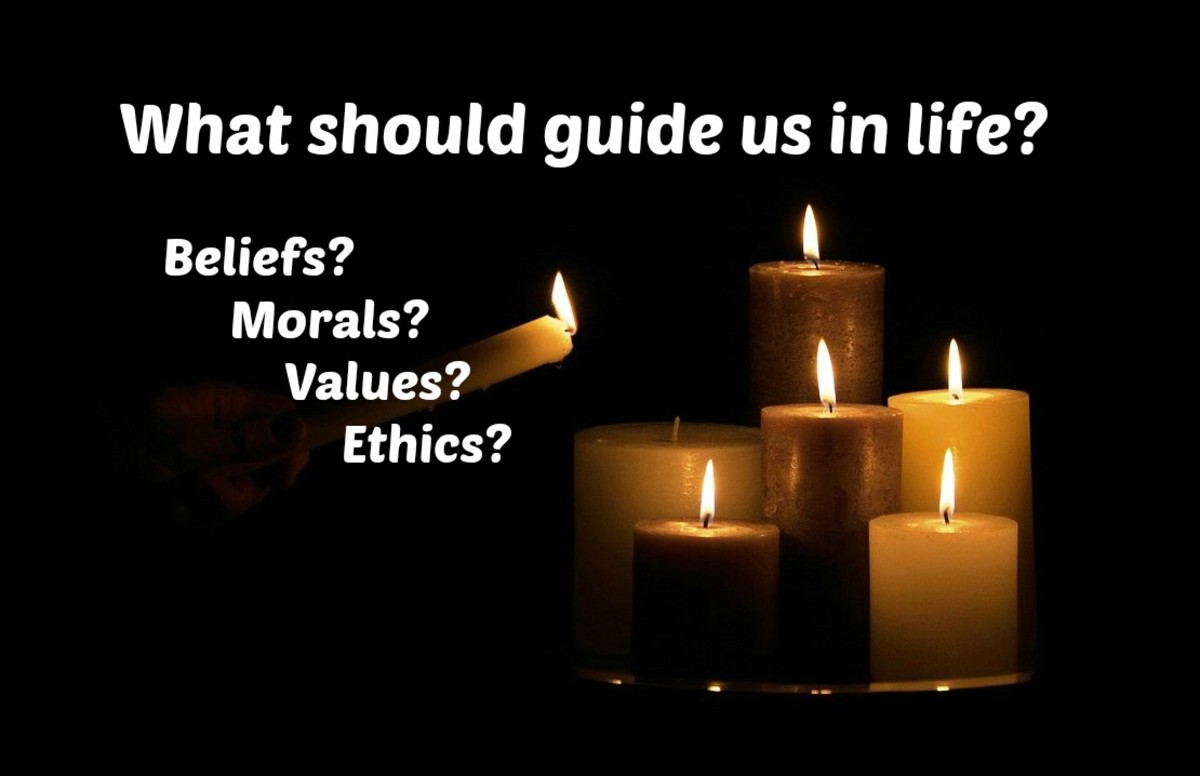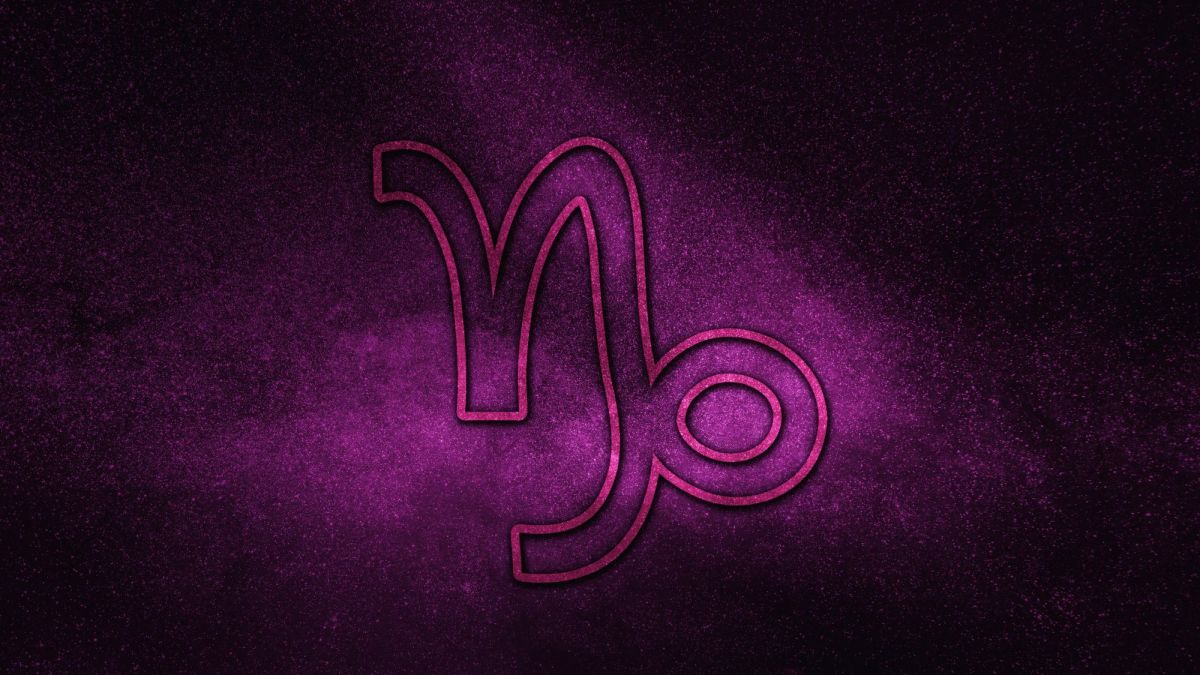Morality & the Mind: How the conscience and consciousness reveal God {Part II}
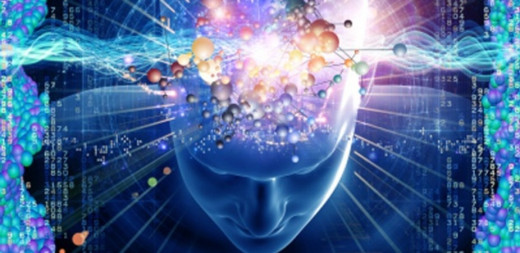
Part II: Morality
{My inspiration for this topic was derived from hub discussion as well as from my own deliberation, an Ethics course, and from the book ‘Mere Christianity’ by C.S. Lewis.}
We continue from where we left off from our discussion, or my discourse, regarding the mind. We now begin our next step in this process of exploration, namely to look into morality.
What is morality, how do we define morality and the actions thereof? A straight forward definition by Webster’s Dictionary states that morality is, “Right living, virtue; conformity to generally accepted standards of conduct”. Morality is the actual content of right & wrong. It is the standard to which we measure our lives to live in a virtuous way.
There are several aspects to this issue. Morality is the 1st, and most important, to understanding the standard, or ‘virtuous measurement’, process. Ethics is a major part of the morality discussion. Ethics is the process of determining right & wrong. One might say that morality is the end result of ethical deliberation. Virtue is moral excellence; so, when referring to a virtuous aim or measurement the end result is to have moral excellence. The conscience is an indwelling subjective tool used by the mind, or our conscious selves, to come to the proper moral conclusions. It is the “moral sense which distinguishes right from wrong” (Webster’s New American Dictionary).
Yes, so far our morality discussion is boring, but we will (try to) change that lack of excitement. The discussion of morality in our current culture is intriguing because the determination can range from basing moral choices on a strict set of rules all the way to someone saying, ‘there is no morality’… yes, ‘none’ is what they (whomever they are) say.
Sail Away
Before we begin to run towards our goal of understanding morality and how it may help ‘reveal God’, as is the point of the hub, let us first get a picture of morality. C.S. Lewis, in his book ‘Mere Christianity’ gave two picture illustrations to help us understand morality. He uses a fleet of ships, and each person is a ship… I’ll let him explain: “You can get the idea plain if you think of us as a fleet of ships sailing in formation. The voyage will be a success only, in the first place, if the ships do not collide and get in one another’s way; and, secondly, if each ship is seaworthy and has her engines in good order… Or, if you like, think of humanity as a band playing a tune. To get a good result, you need two things. Each player’s individual instrument must be in tune and also each must come in at the right moment so as to combine with all the others” (C.S. Lewis, Mere Christianity, pg.46).
Lewis also explains what goes wrong with the ‘human machine’ in relation to morality. The two possible issues are either that people drift apart or collide into each other, or that something goes wrong internally when, “different parts of him (his different faculties and desires and so on) either drift apart or interfere with one another” (pg.46). He brings this back to the idea that we are ‘ships’ and we may either collide with other ships, or if the ‘steering gears are out’ then a future collision for that ship will also be unavoidable.

What then is morality ‘concerned with’? As Lewis described, “Morality, then, seems to be concerned with three things. First, with fair play and harmony between individuals. Secondly, with what might be called tidying up or harmonizing the things inside each individual. Thirdly, with the general purpose of human life as a whole: what man was made for: what course the whole fleet ought to be on: what tune the conductor of the band wants it to play” (pg.46).
This morality issue seems fairly important if it concerns our ‘ships’ colliding, running aground, or failing to fall in line with the fleet. Society concerns itself primarily with the first issue of ships colliding. But why not be most interested in this matter? If everyone is running over everyone else chaos ensues and society cannot function; everyone is possibly afraid for their life because or at least concerned about being ‘hurt’ in some way… even if someone treats him or her in an unfair way. Though it does make sense that if there is some internal mechanism which might go wrong we may want to put some focus on developing what we might call ‘character’… ensuring that individuals in society are honest and have integrity whether big brother is watching or not. Most of the time society pays the least attention to the voice (or arm waiving… with the little wand thing) of the Conductor, or the directing (or orders) of the Admiral… because, as far as we might be concerned, 'who is that guy anyway, is there even someone holding this fleet together or are we just floating boats trying not to hit other boats'?
The Conscience Compass
Perhaps our first inclination that morality exists may be our internal moral compass, the conscience. The conscience tells us we need something to base this compass on, and we call that morality. Morality is our moral magnetic north… the conscience is just the compass to show us how to start the journey towards our goal. We then determine the right course of finding morality by using ethics. Moral standards are what we attain to and aim for by using ethical practices. We want to achieve virtue by ‘hitting our goals’ and being a moral master in accomplishing moral excellence after successfully using ethics to understand our moral aim. Just a mid-explanation-sum-up, now back to the conscience…
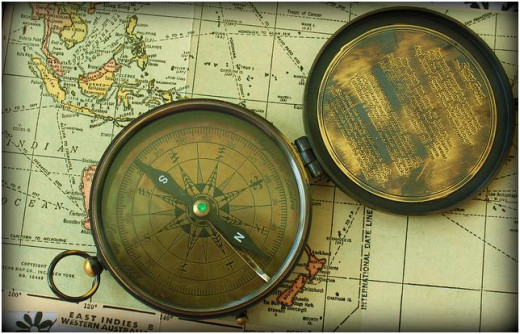
The conscience is the moral compass, and as we know the compass was made (designed) to lead to magnetic north. North was not created for the compass, just like true Morality was not created by our conscience, there is a realization that there is morality because our ‘compass' (our conscience) tells us what direction to go. It would be silly and insane for people to believe that the compass created magnetic north. No, it was discovered that magnetic north exists and therefore a compass was made in order to point towards it. It stands to reason then that our conscience exists to point towards morality. How did our conscience get there, inside of us? Everyone has one, whether their ‘compass’ points towards magnetic morality (just wanted to mix it up a bit) or towards something else.
It is possible for a compass to be broken so it does not point towards magnetic north properly… sure, usually it points towards a direction that’s not far off, but what if the compass is broken completely. Some people have trained their conscience to point in a whole other direction. It’s like making our desire the new magnetic north (like on Pirates of the Caribbean)… altering the compass to point towards something besides true north.
Take Hitler for example. How many of us would say his ‘compass’ was working properly? In his society he was not only lauded for his exploits, but even a hero and then some. How is it that the societal morals did not keep his own conscience in check? Easy, he influenced his own conscience to point somewhere else and eventually was able to influence the whole of society. He created a new north, as it were, and altered the course of a nation, which altered the history of the whole world. Not many people can claim to cause a World War, but Hitler would definitely have been able to say such, and it would not have been a laudable achievement to list on his resume. His broken, or altered, moral compass cost the lives of millions and continues to echo through human history as one of the more extremely heinous atrocities we know of.

'But hold on there', you might think… 'the conscience only points towards a direction, and that direction might be good. But you said (I wrote) that it can become corrupted, that it is only like a compass but not the goal to be attained. We are not trying to find the compass, we are trying to find magnetic north!' Correct you are if you are thinking this (if not, perhaps now you are… little test, try not to think of a Pink Elephant). So, we know the conscience is just a part of the equation. What is the next logical process involved then? Ethics.
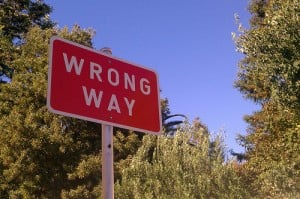
Ethics
Ethics is the can of worms which we now must open. There are so many perspectives on ethics it can make someone’s head spin. This process by which we determine what is right & wrong, this method to keeping out the madness of morally corrupt persons, is rather important and perhaps more simple than we want to believe. Before bringing simplicity let us look at what is involved in the pursuit of morality by the process of ethics.
There are 4 Categories of Ethics:
· Descriptive Ethics- Describe morals of a society
· Normative Ethics- Discipline that produces moral norms (rules that prescribe behavior)
· Meta Ethics- Investigates the meaning of moral language (like “good” or “right”)
· Aretaic Ethics- (not even spell check knows this one) Focuses on virtues that are produced in people
And then we have the process:
Model for Ethical Decisions:
1. Gather the facts
2. Determine issues
3. Consider principles (main beliefs, values, creed, etc.)
4. List alternatives
5. Compare: principle vs. alternatives
6. Consider consequences
7. Make a decision
A Part of the System
Do you see how complicated this process can become? I am going to help you (in reading) and I (in writing), and simplify this process. Though there is learning involved (drat!) and precise terms (double drat!!) we will look at the three basic ethical systems which one may use to explore morality.
Ethical Systems: these are either action (behavior) oriented or virtue (character) oriented:
I. Deontological- duty; rules set in concrete- based upon principles, actions are inherently wrong
II. Teleological- end; What will the result be?- based on the end result, consequences determine action
III. Relativism- right and wrong change with the culture
Relativism
We will take a similar approach to my previous hub about ‘the beginning’ in weighing these three ethical systems. We will work backwards in our list and start with our deliberation on Relativism.
Relativism equals moral subjectivism- whatever is right for you is Ok, but do not force it on me (I used my Ethics Class notes and the TrueU.org series on ‘Does God Exist’ for my premise):
~ There are no objective ethical norms that are binding on all people
~ There are no objective or trans-personal standards above all to which we can appeal
~ The language of ethical norms (“ought language”) merely expresses personal preference or tastes.
The immediate impending problems come rushing towards us like a logic tidal wave once we understand what is involved with this viewpoint. There can really be no ethical disagreements if one takes on the relativist stance, only differences in ‘taste’. Also, it implies there can be no ethical errors. And progress in ethics is impossible. It is important that we understand this is a Naturalist perspective on ethics, that this is an Evolutionary Ethics approach.
We can observe the top ten things a relativist cannot do (from the TrueU series, ‘Does God Exist’): 1.) Can’t accuse others of wrong doing 2.) Can’t complain against being mistreated 3.) Can’t blame others or give praise 4.) There is no unfairness 5.) Can’t improve morality 6.) No- ‘what we should do’ 7.) Can’t say, “it’s wrong to be intolerant” 8.) No argument about evil 9.) Can’t say, “right” or “wrong” 10.) Can’t take responsibility for actions

The problem with this view is that no human person can fully live in this realm of relativist reality… it, in fact, does not line up with the reality of what we can observe around us. Scratch a relativist and you find a moralist underneath. Relativism debunked. It is not the way to find morality; it is a denial of morality in a world that obviously needs morality, and even requires it.
Teleological
The Teleological system takes on two different, but similar approaches: Utilitarianism & Ethical egoism. Utilitarianism- Concerned with the greatest good for the greatest number of people. This is a societal approach to ethics. The question, 'what is best for society?' is the primary drive, and the answer is morality based upon the needs, or wants, of that society. Ethical egoism- What is in the person’s best interest? The ‘right’ thing is determined by what an individual wants or needs.
The first observation about these two approaches is the certain clash that will inevitably happen. The similarity between these views is also what brings the clash; that each demands the central place in determining moral decisions. One must choose which approach to take, or must realize that one day his or her desires will not align with those of society and a choice will then need to be made. Which one of these approaches most lines up with true morality. If there is no right answer then how can one ever know for sure if society is going too far or if an individual is going too far in their assertions that a ‘wrong’ is being done against them? Since an impasse is quite present here let us, for argument’s sake, choose one of these to defend.
Society
Let’s choose society… for without society how could any one person function properly? It is praiseworthy for a person to sacrifice oneself for the greater good. When a soldier jumps on a grenade to save a troop isn’t that a situation we look to for a great example of bravery? Sure it is!
Let’s not be too hasty, however, as we need to put some thought into this decision. What or who runs society? People do. Can people ever become corrupt, can they choose poorly, even make a wrong moral choice? Even without having morality nailed down at this point I think we would say a resounding “Yes!”… for we have seen societies try to form a reality around this principle and crumble because they do not balance the need of the people with society’s needs… society wins. Communism is a real life example of an incapable system that uses this method. When you give everyone just what they need and ensure no more is maintained you take away their reason for bringing anything to society. When the person is put behind the needs of society then society crumbles because people make up society.
Be an Individual
Well then, let us choose to defend the individual… the ethical egoism; for now we can understand that the person makes the difference and matters most. So, we will abandon society and allow personal preference and personal needs to advance the culture. What have we done when this perception permeates culture. Well, obviously society will suffer. Why? Because the individual person will be put first before society. If a police officer is under duress, and being fired upon with a gun, then all courage can go out the window... what sense of duty? It is in the best interest of the officer to avoid being shot. ‘Perhaps other people will be shot, but not me, not today’ might be his thinking. A person making themselves the center of the universe and looking out for #1 is looked at by other persons as cowardly and selfish. Does anyone suppose that this pursuit will lead to a morality which we can use as a foundation for living? Nor do I.
Deontological
Deontological… the last man, er… ethical system, standing. This can be based upon one of three approaches (yes, more approaches… I feel your pain): Divine Command by God, Natural Law, and Ethical Rationalism.
Ethical Rationalism
Ethical Rationalism enables one to think things out to come to a rational conclusion. We have already explored this possibility in discussing the moral compass. Though one might say, the conscience is not rational (necessarily); one should also take into account that few people can separate the two. Who uses only rational reasoning to make every (moral) choice? How does one even rationally come to a conclusion about what is ‘right’ and ‘wrong’? One would either have to use one of the previous two ethical systems, which do not seem to work, or would need to create a set of rules & principles by which to live. Unless Spock is writing this set of principles to live by, subjective reasoning will find a way in to poison the process. Because people have flaws and can have a broken moral compass we need something more solid by which to ‘build upon’. If pure logic can ignore the conscience by what do we measure our decisions by? What is good for society? What is good for a person? We run into an ‘epic fail’ when trying to logic out what is wholly ‘right’ & ‘wrong’ for everyone.
It's Natural
What about Natural Law? Natural Law is basically what we can observe through nature, what is innately a part of life. It is an observable standard within nature that we should know to follow. It is the ‘Law of Nature’ or ‘Law of Human Nature’, as C.S. Lewis described (C.S. Lewis, Mere Christianity, pg.11). This is supposed to be a standard of behavior which everyone knows about and when it is breached those who ‘dun it’, bringing the offense, and those who were offended by it know about the transgression. This natural law is a revealing of conscience, and once again points towards the standard, but 'it' is not the standard. We may know that wrong has been done, but how do we define the wrong? If we use this natural law we have nothing to truly measure by except opinion. We need a more solid answer.
A Standard
Though many people do not want to come to this conclusion it is the most logical, and the most philosophically sensible conclusion. Divine guidelines by a Divine Mind must be the basis for ‘right’ & ‘wrong’. Morality is something that can be known, there is a true morality... there must be; all else is non-sensical and really revolves around the wishful thinking that people should simply know how far the boundaries go without there even being true boundaries.

One may now begin to see how the very existence of morality is evidence enough to contemplate the existence of a God. The understanding of true objective morality shows there must be a complete, or perfect, or real standard by which mankind can ‘go by’. This standard shows there is a Mind behind the creation of the standard who uses a morality ‘plumb line’ to show humanity what is right & wrong.
The realization that God may have put within us a ‘voice’ (our conscience) to tell us what is right and a desire to do good tells us something about this Supreme Being. The fact that true morality seems to be only possible with the help and push of this God also shows us something. What we can learn is that God must be good and virtuous because His desire is for people to be good and to seek a further understanding of right living through pursuing ultimate morality. This also means that a person cannot be more virtuous than God, for how can a stream rise higher than its own source? If we measure God’s goodness by asking “how could a good God allow thus and so?”, then we understand there is ‘good’ and if God created people then the standard of ‘good’ was made by Him… so the very question brings about the realization of God. The source of the question, ‘goodness’, brings us an answer that leads us back to God. Not just a god, but a Theistic God who seems to be as ‘good’ as any person could be… perhaps even better.
Worldview Review
We can quickly review the worldviews, and how Theism holds up in this Mind & Morality discussion. First, with Pantheism, where does the moral standard come from? Sure a conscience might simply be derived from some spiritual substance within. But the weighing of ethical systems and understanding there is a true moral standard, which lines up with reality, damages this worldview’s credibility. How does a matter/god make a moral standard? Materialism is in peril from the Relativist perspective being dissected, as well as both Teleological approaches. Deism makes no sense, because the moral standard would mean involvement in the world… and the Deistic god has no involvement.

Good God
Now we know that we have a conscience which is our compass, we can strive for virtue when we come to understand the moral standards (and excel in them), we can use principles set before humanity in the ethical system from the Deontological approach, and there is a true standard... there are absolutes… there is a real Morality. And most importantly we know this real morality reveals a real God. And what's more, it seems this real God is actually a good God.
Now, we understand Someone is giving orders to 'the fleet'. It seems the 'orders' are in the best interest of each ship to follow individually and for the ships to follow collectively to move properly together. The question may now be, "what are the orders"?
Thanks for reading!
John Marshall

